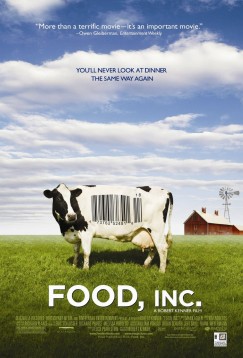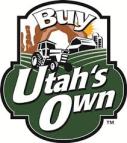 Coconut oil is a tropical oil made from the dried fruit (or nut) or coconut palm tree. It has been a topic of controversy for a while now. Up until a couple of years ago it was labeled as one of those “bad fats”. It is a saturated fat which we all know is the type to be avoided, or at least consumed from < 10% of our daily fat allowance. So why all the talk about the coconut oil miracle and the newest “good fat?”
Coconut oil is a tropical oil made from the dried fruit (or nut) or coconut palm tree. It has been a topic of controversy for a while now. Up until a couple of years ago it was labeled as one of those “bad fats”. It is a saturated fat which we all know is the type to be avoided, or at least consumed from < 10% of our daily fat allowance. So why all the talk about the coconut oil miracle and the newest “good fat?”
Let’s review some of the supposed benefits easily found searching the www:
- Coconut oil may prevent or reverse Alzheimer’s disease
- Coconut oil can relieve symptoms of hypothyroidism by boosting metabolism and raising body temperature to support a healthy thyroid
- Coconut oil can support weight loss
- Coconut oil can support healthy hair and skin
- Coconut can be beneficial for insulin resistance and supporting healthy blood glucose
- Coconut oil can support a healthy immune system by resisting viruses and bacteria and fighting off fungus and candida
- Coconut oil can raise “good” HDL cholesterol
- Coconut helps digestions of fat-soluble vitamins
So, I use the word supposed because most of these points have caveats or are not thoroughly proven or reviewed. For example, Alzheimer’s disease. Alzheimer’s disease is like cancer, in the fact that there are so many possible etiologies and treatments. The reason coconut oil is said to be beneficial is because it supports healthy blood glucose and resistance to insulin dysfunctions. Alzheimer’s is sometimes referred to as type 3 diabetes because the root may come back to our bodies ability to maintain healthy blood sugars and insulin function. Coconut oil is a fat, and if you remember, fat and protein help to slow the digestion of sugars and provide a steady release of glucose into the blood stream rather than a quick spike when sugar is digested alone. But in that case, any sort of fat or protein could be considered beneficial against Alzheimer’s disease. I guess I just need to see more research and specifics before I go crazy over coconut oil to preserve my memory.
Coconut oil is a Medium Chain Triglyceride (MCT) oil. This is a unique quality because in normal fat digestion, our bodies need bile (released from the liver) to coat the triglyceride chains in order for them to be packed into micelles and absorbed across the intestinal wall. However, because MCT chains aren’t as long and complex, they can be absorbed whole into the inner intestinal wall and eventually into the blood stream. This is beneficial especially for those with liver disorders or other upper intestinal illness, because MCT oils can still be absorbed even when the liver or pancreas are unable to produce bile or the appropriate enzymes, respectively, to start the absorption process.
And then there is weight loss. If you pop into a health food store, any associate will be quick to direct you to coconut oil supplements if you inquire about weight loss solutions. This probably has to do with coconut oils role in boosting metabolism, especially in the abdominal region. MCT oils cannot be stored in adipose tissues (aka “fat cells”, like the kind that contribute to body fat). However, according to the Mayo clinic, coconut oil has only been proven to reduce waist size, not BMI or actual pound loss. So don’t get too excited about popping a couple of pills a day and watching the weight melt off. It won’t most likely. And don’t forget, fat grams = 9 calories each, so that’s something to keep in mind when considering calories in/calories out.
Coconut oil contains lauric acid which is a fatty-acid that raises both HDL (good) AND LDL (bad) cholesterol. That isn’t the best news, but there are few proven ways to actually raise HDL cholesterol (exercise and red wine) so it isn’t something to so easily dismiss. If you are able to watch and maintain your LDL levels, coconut oil may be great to help you raise your HDL. In the end LDL:HDL ratios are the important thing to look at when considering risk for coronary artery disease.
The Huffington Post posted this cool article about using coconut oil for beauty. I am pretty excited about using coconut oil as a natural moisturizer. By all means, don’t be afraid to use coconut oil for your hair and skin, it’s rich in Vitamin E and moisturizing components.
So at the end of the day, I do personally like coconut oil- in moderation. It has a sweet and nutty flavor. It is perfect for curries and fish, and I’ve even substituted it for butter when baking. It’s solid at room temperature and when you heat it up in the pan it starts to melt and give off a nutty coconutty heavenly scent that is so yummy! I recommend picking some up at the grocery store. Look for extra-virgin and try these brands:

 They’re just the ones I like best. Check out this book for much more detail, but remember keep a moderate midset. And don’t miss the new recipes in the recipe tab using coconut oil!
They’re just the ones I like best. Check out this book for much more detail, but remember keep a moderate midset. And don’t miss the new recipes in the recipe tab using coconut oil!




